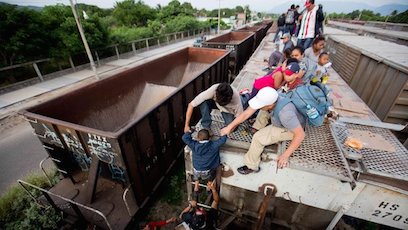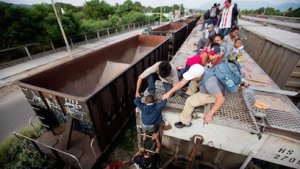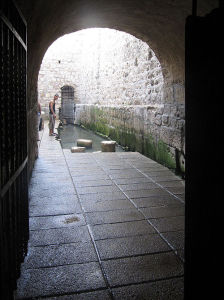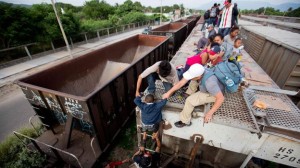PARSHAT VA’YEHI: TWO THOUGHTS ON JACOB’S LIFE AND DEATH
MATIA KAM AND AYALA EMMETT
I. Jacob’s Death in a Wider Context–Matia Kam
Placing Jacob’s death in the wider context of Abraham and Isaac’s deaths is striking. Jacob, unlike the forefathers discloses deep sorrow at the end of his life and points to a significant difference between himself and his forefathers. The text in Genesis supports Jacob’s clear distinction that his is unlike his fathers. The text says that Abraham died “at a good and ripe age old and contented” (Genesis 25;8). On Isaac we read that he died “in old ripe age” (Genesis 35:29). Jacob’s death is described as “breathing his last, he was gathered to his people.” No good age, no ripe age and not contented.
Earlier in the Parsha when Jacob stands before Pharaoh to answer the king’s question “How many are the years of your life?” he does what his forefathers have not done. He does not merely offer his age but follows it with a summary of the quality of his life, “Few and hard have been the years of my life.” And one can almost hear Jacob’s silent but painful sigh. Jacob sees his life as suffused with suffering and struggle.
Nachmanides the 13th century commentator is puzzled by Jacob’s personal disclosure to Pharaoh, ‘’few and hard have been the years of my life” and goes on to say that the years of his life “have not come up to the years of my forefathers.” Yet at that point Jacob is still alive and how would he know that he would not live as long as his fathers or even accede them?”
Nachmanides goes on to say, “It seems to me that Jacob looked grayer and older than his years, and Pharaoh is under the impression that Jacob is much older than he is and expresses surprise and Jacob picks up on it and says, ‘The years of my life are one hundred and thirty’ and compared to his fathers that is short of the years of his fathers, and that he looks much older than his chronological age because his life was filled with difficulties, toil and suffering which brought about untimely aging.”
Jacob therefore does not die old, in ripe age, nor in content. He dies in sorrow.
In a broader perspective and following Nachmanides commentary –“The actions of the forefathers are a symbol or sign for the children” seem to indicate more than the sum of Jacob’s personal life; it offers a foreshadowing of the future of his descendants the people Israel and their struggles and sufferings throughout the generations.



